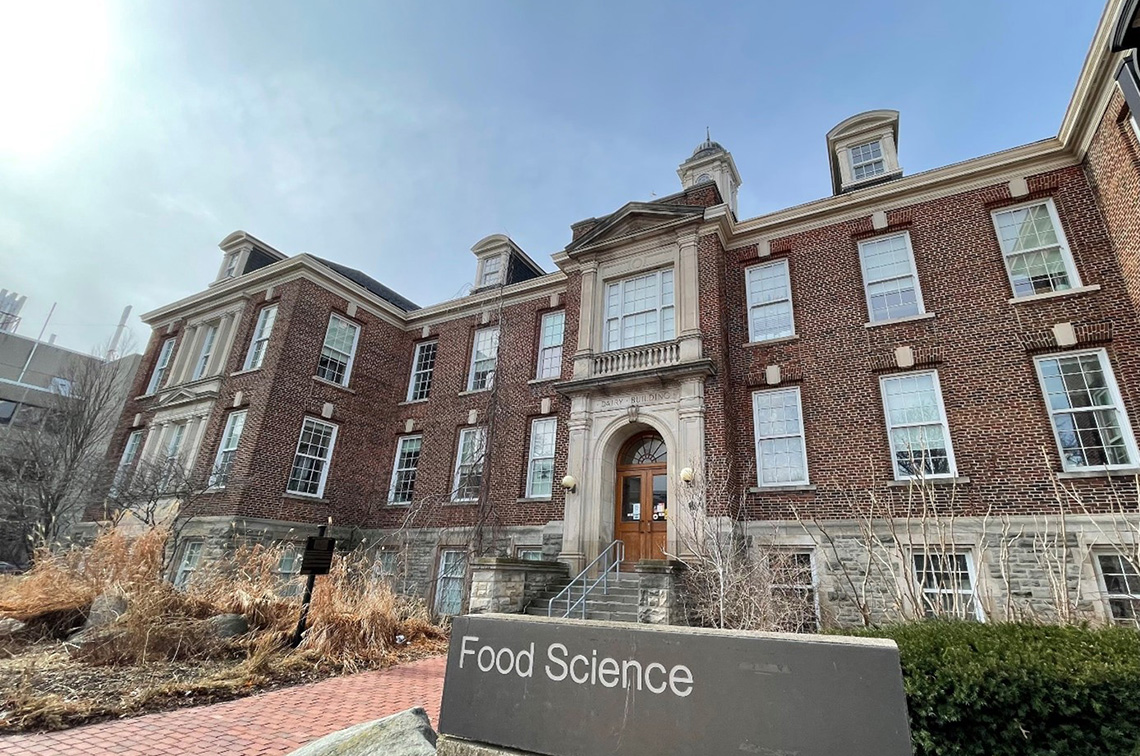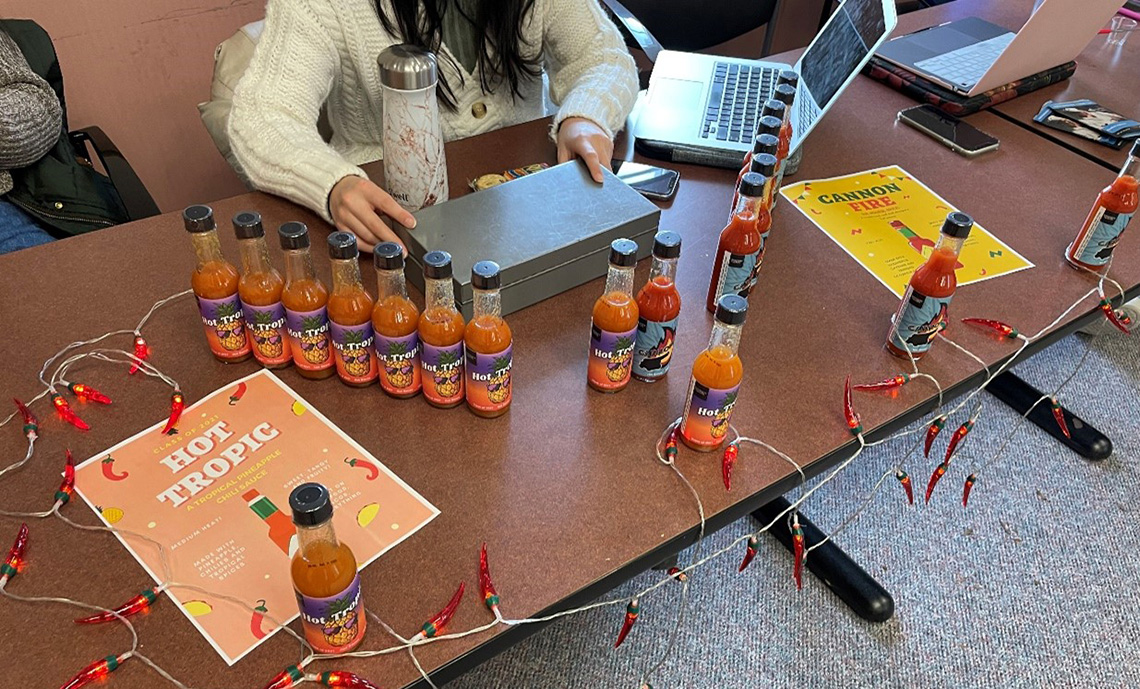Why I chose to study Food Industry Management (FIM) instead of Food Science

Isn’t it such a tough decision to figure out what you want to be in the future at the age of less than 18? If you already found your passion and know what kind of career you want, then you are very lucky.
For me and a lot of people, we are indecisive and doubtful of our potential and future. I feel like I want to do so many things and it is so difficult for me to pick just one area of focus for 4 years. If you feel the same way as I did, then you might be interested to know more about my degree and my major, which is food industry management (FIM). Trust me. It is more interesting than you think!
Factors that influenced my university decision
I have always been pretty nerdy as a student. I am that kid who likes to sit in the front row in class and took many math and science courses. My sister, who has deep love and connection with animals, picked the Animal Biology program at the University of Guelph as her first choice. I think it was a fair decision.
Honestly, being close to my sister was my biggest priority at that time. I wanted to pick a major at same university as my sister. When it comes to programs offered at the University of Guelph, the thing that popped up in my research right away was the Ontario Agricultural College (OAC). This specific section of the University of Guelph interested me so much and it has slowly inspired me into developing the career goal I have right now. OAC was my first filter to sort out what programs I’m going to study at the University of Guelph. I then picked my major based on analyzing the pros and cons of all the majors I was interested in.
What is food industry management exactly?

Food Industry Management (or FIM) is one of the newest programs offered at the University of Guelph. Students enrolled in the FIM program earn a Bachelor of Bio-Resource Management (B.B.R.M.) degree after 4 years of study or 5 years with co-op. The co-op option, allows students to earn real work experience in the industry before graduating.
What is special about this program is that it combines the knowledge the Department of Food, Agricultural and Resource Economics, the Department of Food Science, and the Ontario Agricultural College. This means it gives you a solid background in food science, economics, and business and it focuses on the development of leaders in food industry innovation and operations.
The program was actually created to fill the need of the job market. There are food scientists available but, the food industry still lacks people who have both the scientific knowledge behind food production/food processing and the business knowledge required to manage a company or transactions run by a manufacturing plant.
Based on this research I’ve done, graduating with a food industry management degree will give me a strong foundation in all aspects mentioned and more secure job opportunities after graduation. I will be able to take a variety of interesting courses including chemistry, biology, microbiology, biochemistry, math, statistics, accounting, food science, food agricultural and resource economics, human resources, and organizational behavior courses.
An alternative to food science degree

The food science program at the University of Guelph is one of the best among all Ontario universities and across Canada. I think studying FIM takes advantage of this expertise but provides more opportunities to apply food knowledge outside of the lab.
The University has the best facilities and our own food manufacturing plants on campus. Upper-year food students in both food science and FIM get to use actual machines involved in food production to make a large batches of ice cream, cheese, and hot sauce from scratch.
Having a variety of classes from different departments really opened my eyes. It gave me a better view of the food industry. I think it is such an advantage for us to get to know how food is being produced, processed, and consumed (like food science students), but FIM students also learn how food is involved in people’s lives from different aspects like agriculture or economics.
Another perk of being a FIM student is you get to avoid some difficult classes that food science students have to take, like Physics, Physical Chemistry, Calculus I, and Calculus II. It is like FIM students get to enter the food industry using a different route, but we will end up in similar positions. We take commerce-based courses instead of math. If you feel like you don’t enjoy solving physics or calculus questions and would rather take that time to learn something else, then I think it will be a perfect fit for you.
In my case, was not a big fan of my physics class in high school. Differing from our food science program requirements, FIM does not require high school physics, as well as university level physics.
Sometimes I feel like I am a science student, but sometimes I also identify myself as a business or management student. It is nice to have that balance and the ability to switch around your focus.
Meeting people from all areas of the food industry

Friends from my classes also have different backgrounds and career goals. I have a classmate who came from a dairy farm, a classmate who plans to go to medical school, and a classmate who wants to become a business owner.
The ability to meet friends from different fields constantly in the first and second years of university also inspired me to understand myself and figure out who I wanted to become.
Closer Community, Bigger Connections, More Opportunities

FIM is a very small major, so I feel like we are more connected as a community. You get to know everyone’s names and faces from your year, as well as the upper years and newcomers. I met a girl who’s an upper-year student from my program through one of the FIM Meet and Greet events. We exchanged our contact info and have hung out so many times afterward. I think there is a one-of-a-kind advantage for FIM students to connect with both business, science, and BBRM students. We are also part of the OAC Aggies too! The FIM program has really helped me achieve connections and sense of community so easily. We understood and relate to many fields.
There are other benefits of being in a small program. . For example, there are significantly less students competing for BBRM scholarships. Plus, I think it is easier to find a co-op placement because less people are applying for the jobs you want.
Overall, I really like my program and have never regretted my decision at any point during my study at the University of Guelph. It is also very fun to answer people when they ask about my major and have no clue about it!
About the blogger: Pimpisa is a second-year international student in the food industry management program at the University of Guelph. She always tries her best to get out of her comfort zone and gain new experiences. Nothing can excite her more than having an overpacked schedule as she gets involved in different communities.
In this series of blog posts, OAC students take us through some of the ups and downs of their journeys at the University of Guelph.